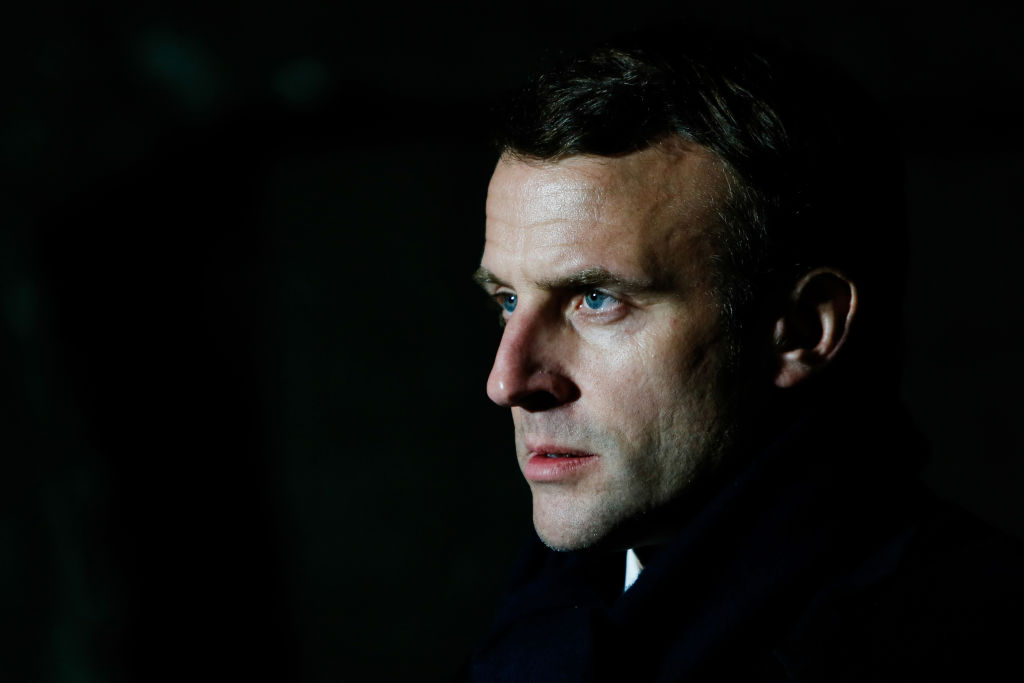Emmanuel Macron is, for all his carefully polished image as a radical modernizer (and with the possible exception of not having multiple mistresses), a very traditional French president. He protects domestic industries, especially if they happen to manufacture cars or guns. He subsidizes farmers, sends soldiers to small African states, and accumulates more and more debt. Oh, and also in keeping with tradition, he gives interviews to either the Financial Times or the Economist full of high-flown rhetoric about European solidarity before quietly doing a deal with Germany.
This week it was the turn of the FT. In an interview with the paper’s new editor, he argued that Europe now ‘faced a moment of truth’. To fight the coronavirus, it needed ‘common debt with common guarantees’ otherwise ‘the populists will win — today, tomorrow, the day after, in Italy, in Spain, and perhaps in France and elsewhere.’ And so on and so on. And yet the real ‘truth’ of course is this: Macron doesn’t mean any of it, and has no intention of actually delivering.
Ever since he became president, Macron made regular pitches to reform the EU. In Athens, in 2017, he promised to lead a ‘rebuilding’ of the European project that included more democracy. Last year, in an open letter to ‘the people of Europe’ (not all of whom necessarily wanted him to get in touch) he argued for a ‘renewal’ of the EU project that would include a common border force, protection of strategic industries and shared tax rules. In his first speech to the European parliament in 2018, he pledged to fight ‘selfish nationalism’ and rebuild the EU. It would be easy to go on and on. But the point is surely clear enough. If making speeches and giving interviews about reforming the EU were all that were needed then no one could fault the president’s diligence.
The trouble is this: the reality has yet to live up to the promises. In fairness, there is nothing especially wrong with Macron’s analysis. The eurozone desperately needs common borrowing power — the so-called ‘coronabonds’ pushed by Italy and Spain — to meet the costs of tackling the crisis. It needs to be able to print money in the same way the United States, Japan and Britain can.
So far, however, the rhetoric has been just that. Rhetoric. Over the last four years there has not been a single significant reform of the EU. Instead, and often at Macron’s insistence, it has gone backwards. He was happy to scrap the system for democratizing the choice of president, preferring instead a back-room deal with Germany that installed the soulless, tone-deaf technocrat Ursula von der Leyen. He maneuvered Christine Lagarde into the presidency of the European Central Bank purely on the grounds that she was French, and ignoring her inexperience in banking (and where, right on cue, she helped crash the Italian bond market at the start of the crisis). When there is a deal to be done, in France’s interests, he is the first to start haggling.
The same will no doubt happen in the latest crisis. Macron will talk grandly about solidarity. When Germany refuses, he will back down, probably in return for some financial leeway for France, which is already planning a vast increase in state spending to cope with the crisis, and is on track to become the third biggest debtor in the world. The rest of the continent will be abandoned. Macron’s talk of European renewal might sound positive. But it is unlikely that many of the millions of people about to lose their jobs in the shattered Italian and Spanish economies will feel the same way.
This article was originally published onThe Spectator’s UK website.


















